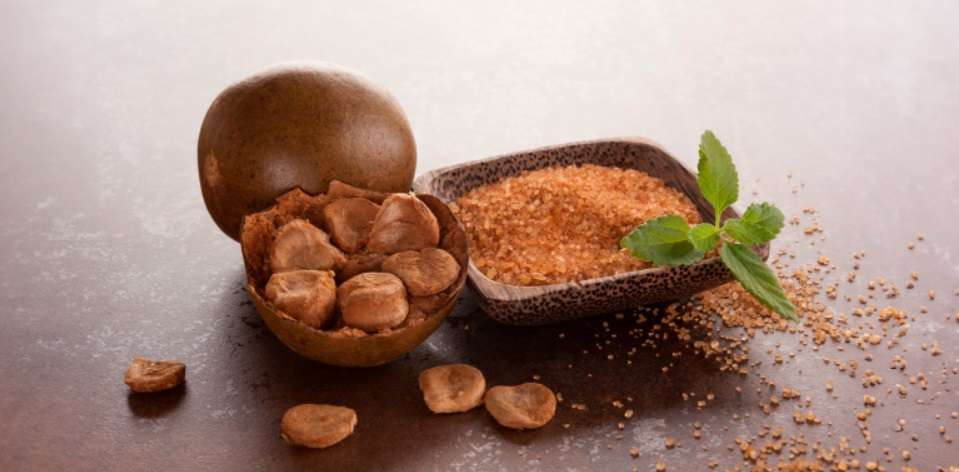
Intermittent fasting has become a popular lifestyle choice for many looking to improve their health and manage their weight. It involves cycling between periods of eating and fasting, requiring careful consideration of what is consumed during those fasting windows to avoid breaking the fast. A common question arises: can I use monk fruit in my coffee during intermittent fasting? Let’s dive into this sweet query.
Can I Use Monk Fruit In My Coffee During Intermittent Fasting?
The simple answer is, in most cases, yes. Monk fruit sweetener, known for its zero-calorie content, does not typically break a fast for most people. However, it’s not a one-size-fits-all answer. Research suggests that while monk fruit and other non-nutritive sweeteners like stevia do not directly impact insulin levels or blood sugar, individual responses can vary significantly. Some individuals might experience an insulin response, even in the absence of actual sugar or calories, highlighting the importance of personal testing and awareness of how your body reacts to monk fruit during fasting periods.
Key Takeaways
- Monk Fruit Sweetness: As a zero-calorie sweetener, monk fruit is generally fasting-friendly, not expected to elicit an insulin response, making it a suitable addition to your coffee during intermittent fasting.
- Individual Responses Matter: Not everyone reacts the same way to monk fruit. While many will find it fasting-compatible, some individuals might experience an insulin response, underscoring the need for personal experimentation.
- Health Benefits: Beyond its role in fasting, monk fruit has been associated with additional health benefits, including anti-inflammatory properties and the maintenance of stable blood sugar levels, which can complement the health goals of intermittent fasting.
- Purity Counts: When choosing a monk fruit sweetener, the product’s purity is crucial. Some sweeteners on the market might include fillers or sugar alcohols, potentially affecting your fasting state. Always check the ingredients to ensure you’re using a product that’s pure monk fruit extract.
The Science of Monk Fruit and Intermittent Fasting
Monk fruit, a natural sweetener derived from a fruit native to Southeast Asia, has piqued the interest of health enthusiasts, especially those practicing intermittent fasting. Let’s unravel the science behind monk fruit and why it’s considered a viable option for fasting periods.
Glycemic Index and Insulin Response
At the heart of monk fruit’s fasting-friendly reputation is its glycemic index (GI) of zero. This means it does not raise blood sugar levels after consumption, a critical factor for maintaining the fasting state. Since insulin levels are closely tied to blood glucose levels, consuming foods or beverages with a high GI can trigger an insulin response, potentially breaking a fast. However, monk fruit doesn’t provoke such a response, making it a suitable sweetener during fasting windows.
Diabetes and Blood Sugar Management
For individuals with diabetes, managing blood sugar is a constant concern. Monk fruit emerges as a promising ally due to its non-impact on blood sugar levels. Its zero GI makes it a safe choice for diabetics looking to indulge in a sweet flavor without the adverse effects of sugar spikes or increased insulin levels. This characteristic also supports insulin sensitivity, a significant benefit for those managing or preventing type 2 diabetes.
Anti-inflammatory Benefits
Inflammation is a natural response of the body to injury or infection but can become problematic when chronic. The mogrosides in monk fruit, which are the compounds responsible for its sweetness, have been found to possess anti-inflammatory properties. These benefits are particularly appealing to individuals practicing intermittent fasting, as fasting itself is known to reduce inflammation levels. By incorporating monk fruit into their fasting regimen, individuals might amplify the anti-inflammatory effects of fasting, potentially accelerating health benefits such as reduced risk of chronic diseases.
Monk Fruit: Pros and Cons During Fasting
Monk fruit sweetener shines as a fasting companion, mainly because it does not spike your blood sugar levels. This makes it an excellent choice for those looking to maintain their fast without sacrificing sweetness in their coffee or tea. The absence of calories and carbohydrates in monk fruit means it won’t break your fast, offering a way to enjoy sweetened beverages without disrupting the metabolic state you’re aiming for.
However, monk fruit comes with its share of challenges. Its availability can be limited, as it is not as widely stocked as other sweeteners, potentially requiring a visit to specialty stores or online shopping. This scarcity also affects its price, often making monk fruit sweeteners more expensive than their counterparts. Some people may find its taste slightly different from sugar, with a unique aftertaste that not everyone enjoys. Additionally, as a natural product, there’s a small chance it could trigger allergies in susceptible individuals, especially since it’s a member of the gourd family.
Alternatives to Monk Fruit and Their Impact on Fasting
When considering alternatives, stevia, erythritol, and xylitol are popular natural sweeteners among those practicing intermittent fasting. Like monk fruit, stevia has a GI of zero and does not affect blood sugar levels, making it another fasting-friendly option. Its taste, however, can also have a noticeable aftertaste that some people might need to get used to.
Erythritol is a sugar alcohol with minimal calories and no significant impact on insulin levels, making it suitable for fasting. However, because a portion of erythritol can be absorbed in the GI tract, it might break a fast focused on gut rest despite its minimal caloric content.
Xylitol, another sugar alcohol, does have a slight effect on blood sugar and insulin levels, albeit much lower than sugar. This makes it a less ideal choice for fasting, especially for those strictly monitoring their blood sugar levels or aiming for a complete fast without any caloric intake.
FAQs
Can monk fruit sweetener break my fast? No, monk fruit sweetener typically does not break a fast due to its zero-calorie nature. However, individual responses can vary, so it’s essential to notice how your body reacts.
Are there any health benefits to using monk fruit during fasting? Yes, monk fruit has been linked to several health benefits, including anti-inflammatory properties and maintaining stable blood sugar levels, which can complement the effects of intermittent fasting.
What are some alternatives to monk fruit for sweetening during fasting? Popular alternatives include stevia, erythritol, and xylitol. Each has different effects on blood sugar and insulin levels, so choosing one that aligns with your fasting goals and body’s response is key.
Final Thoughts
Monk fruit stands out as a favorable option for many engaged in intermittent fasting, offering the sweet taste many desire without impacting blood sugar levels or breaking the fast. While it suits most people, individual reactions and preferences play a significant role in choosing the right sweetener. Remember, the goal of fasting is personal health improvement, so selecting a sweetener should align with your health objectives and how your body responds to different substances.









